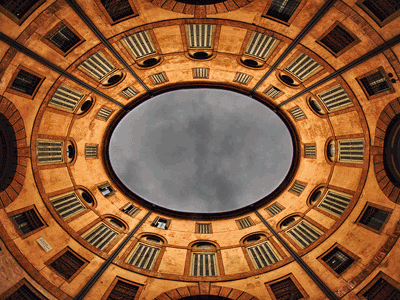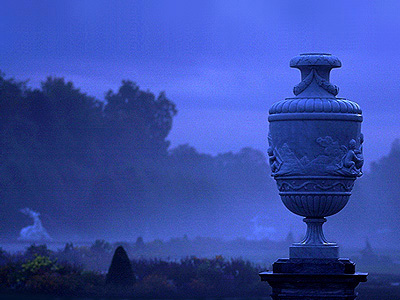
By ANDREW POWELL
Published: April 30, 2017
FERRARA — Lanky Teodor Currentzis looms over his MusicAeterna players the way Basil Fawlty loomed over Manuel, and with comparable gestures. It is anyone’s guess how their 13-year relationship has survived, what with labor conditions in Russia, the quirks of period-instrument practice, their joint move from Novosibirsk (in Asia) to Perm (in Europe), and the Greek-Russian maestro’s self-absorption. What is certain is that the band is prospering. It recently finished a studio cycle of Mozart’s da Ponte operas for Sony (extravagantly recording Don Giovanni twice because Currentzis was unhappy with the first product). This month it wraps up a nine-city European tour stretching musically from Berg to Pergolesi. And July will see MusicAeterna, not the Vienna Philharmonic, launch the opera schedule at the Salzburg Festival.
Currentzis himself demanded attention April 10 on a tour stop at this Renaissance city’s ornate Teatro Comunale. Concert pants tight as riding breeches and a jacket that would have done everyone a favor six inches longer were a start. Then came his shaking up of the scores at hand. Mozart’s Symphony No. 25 (1773) whirled along on period-design oboes and bassoons, valveless horns and gut strings (tuned to an A pitched probably at 430 Hz); fortepiano continuo; highly contrasted tone colors, the string tone slender yet refined; textures airy and clear; strongly accented rhythms; brisk tempos; and above all a nervous energy in the articulation of every idea. Startled by the sounds, everyone, even the on-duty firemen, gazed at the podium throughout.
But the limits of MusicAeterna’s artistic priorities became clear. The fortepiano stayed in place where the second violins usually are for Mozart’s D-Minor Piano Concerto, K466 (1785), hindering the efforts of soloist Alexander Melnikov, a chamber-music partner of Isabelle Faust and Jean-Guihen Queyras who had flown to Italy for this one date. His instrument’s position, combined with its modest range and tone, left the Russian barely able to distinguish his part — dire straits in the Romanze — while the accompaniment imposed similar values as in the symphony. After the break, in Beethoven’s Eroica Symphony (1803), a canvas double the size of the Mozart and with ambitions in form and mood beyond its world, Currentzis’ chronic grimness of attack and unnuanced balances grew tiresome, for all the Perm musicians’ virtuosity.
Architecturally the Ferrara theater is a treat, not least its oval courtyard, the Rotonda Foschini. A “stage-space of suggestions” or just a graceful place to wander during intermission, it draws the eye up and around in, well, dizzying ovals. After concerts, listeners exit the venue to face immediately the dark, massive Castle of the House of Este — rulers from here for four hundred years; reclaimers of Po Delta marshland; humanist pioneers of the “ideal city” and modern urban planning; employers of Piero della Francesca, Jacopo Bellini, Andrea Mantegna; art collectors and exemplars for the Medicis and the Vatican.
In a surprise, Currentzis early this month was appointed to the top conducting job in Stuttgart. He will be Chefdirigent of the new SWR Symphonie-Orchester, fruit of the poisonous merger of the SWR Sinfonieorchester Baden-Baden und Freiburg and the Radio-Sinfonieorchester Stuttgart des SWR. This is of course a “normal” orchestra, unlike MusicAeterna, intended as a full counterpart to Bavaria’s lavishly funded Symphonie-Orchester des Bayerischen Rundfunks. So it will be fascinating to see how he does, how the conservative state of Baden-Württemberg receives him, how he splits his time with Perm, and whether he can cope with limited artistic power and a German bureaucracy. One wag (Ralf Döring in Osnabrück) quickly dubbed Südwest-Rundfunk’s choice of Currentzis a “diversionary tactic” to skirt the merger pain, his point being that the maestro’s interpretations are polarizing enough to corner all discussion. Currentzis starts in Sept. 2018, with, it should in fairness be noted, past work under his belt with both dissolved orchestras.
Photos © Andrea Parisi (rotonda), Marco Caselli Nirmal (concert)
Related posts:
Bartoli’s Scot-Themed Whitsun
Nitrates In the Canapés
Kušej Saps Verdi’s Forza
Brahms Days in Tutzing
Berlin’s Dark Horse
